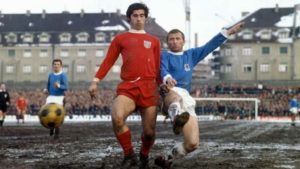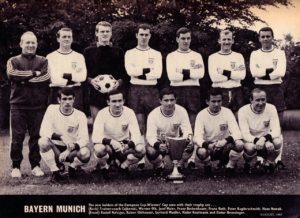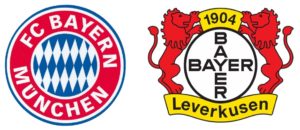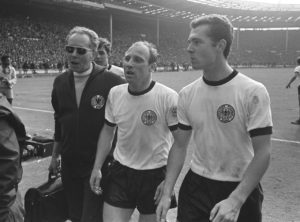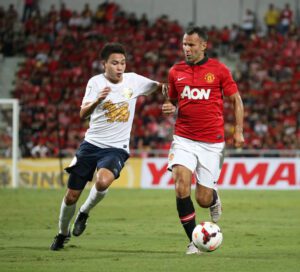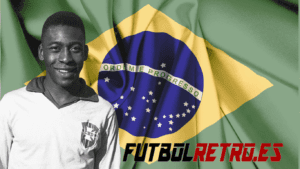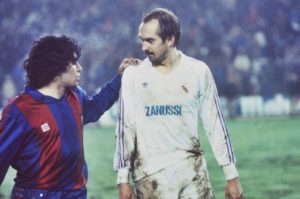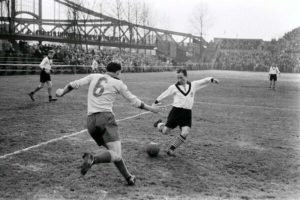Rudi Voeller, one of the best German strikers of his generation
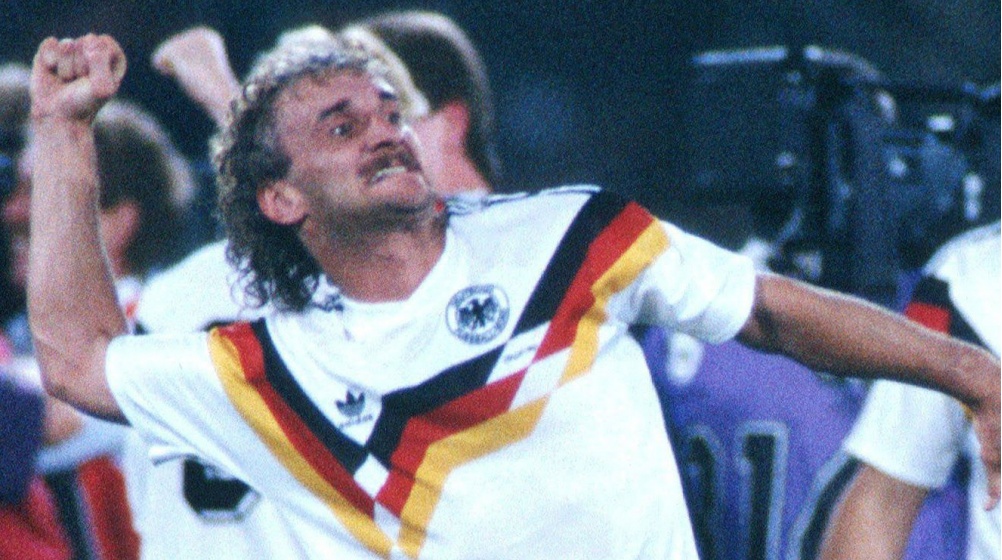
Maybe, especially the youngest, the name of Rudi Voeller les teleportation to Bayer Leverkusen, team of which he is the current sports director. But nevertheless, for the veterans, Aunt Kathe (Aunt Kathe), as he was affectionately called because of his blond curls, his mustache and appearance , He is a legend of German and world football.
His first stage in Germany
His romance with the ball began in Germany in 1980, first in the TSV 1860 Munich and then in the Werder Bremen. With “Los Leones” he played a total of 70 games and reached the goal in 46 occasions before being transferred in 1982 to “The River Islanders”, where he would wear the green and white shirt for five seasons, disputing 137 matches and scoring 97 goals.
An icon with the national team shirt
That 1982 would also witness the debut of Rudi Voeller with the German national team, where he wore his country's kit in 90 matches and would score 47 goals.
On campus he would share eleven with his partner in attack in two World Cups: Jürgen Klinsmann, player who would help him achieve fourth place in the ranking of the best German scorers of all time with those 47 many, surpassed only by Miroslav Klose, with (71), Gerd Müller (68) Y Lukas Podolski (49).
With the national team he played soccer world cup 1986, in which he scored 3 goals (against Scotland, against France in the semi-finals and the 2-2 part in the final against Argentina), soccer world cup 1994, where he was also decisive when scoring 2 goals (both beat Belgium in round of 16), and the most special, soccer world cup 1990, trophy that Germany managed to lift. In that, once again, saw door in 3 occasions (ante Yugoslavia y 2 to United Arab Emirates). Sonado was his incident with Frank moneybags who ended up spitting on the German in the Netherlands-Germany in Italy 90.
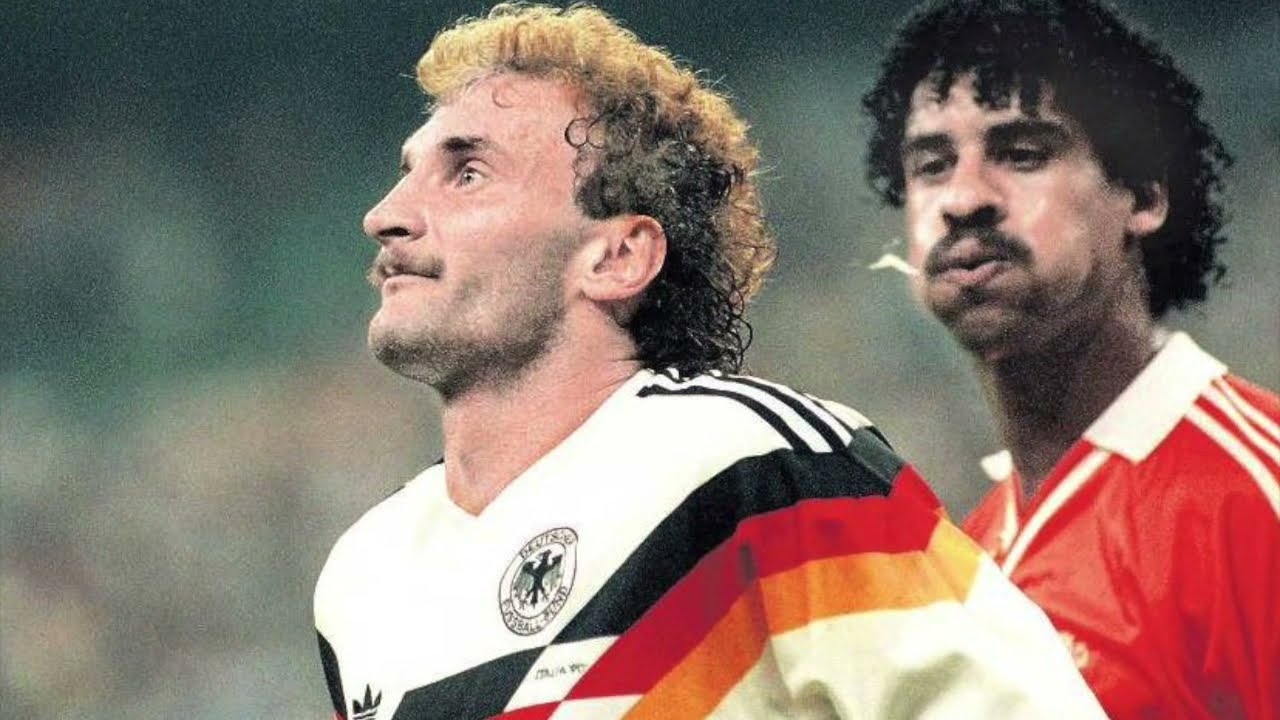
in global computation, Rudi Völler played 3 world, I note eight goals and disputed, also, the European Championships 1984, 1988 Y 1992.
His stage in Italian and French football
After his time in the country where he was born, Völler continued to discover the old continent. The first destination would be Italy, specifically AS Roma. Where all roads lead I would begin to play in the season 1987/1988, but if any will remain in his memory that will be the one of 1990/1991, campaign in which the red-and-yellow team won the seventh Italian Cup.
After scoring the trophy in his record, the German travels to France to end up landing at the Olympique de Marseille. With “Los Focenses” and under the orders of Marc Bourrier, Rudi conquers the European Cup 1993, together a course before returning to his homeland, Germany.
Rudi Völler's Homecoming
already at home, joined the Bayer squad 04 Leverkusen in the year 1994. His second stage in the Bundesliga was without pain or glory as he was unable to win any more titles in his personal showcase before retiring in 1997.
But nevertheless, those who carry this sport in their blood never end up disassociating themselves from it. And Völler was one of those. Germany would still have a few cups left from Hanau.
The rudi trainer
It is indisputable that Rudi Voeller he was one of the best German centre-forwards of his generation. had power, personality, technique, discipline and, the most important, hunger for goal. Despite that unattainable magic in the green, what he did on the bench was even better.
As coach of the German national team between 2000 and 2004, Rudi fought for the Korea and Japan Soccer World Cup 2002, where after a great campaign in full renewal of German football, managed to place the Germans in second place in the competition. A World Cup that got out of hand when he lost to the powerful Canarinha (2-0) and it will haunt you, because he was about to achieve the feat of the great Franz Beckenbauer, who won the World Cup as a coach and as a player.
His next opportunity would be presented at the European Championship 2004, but after the elimination of those in white from the championship, Völler decides to dimit.
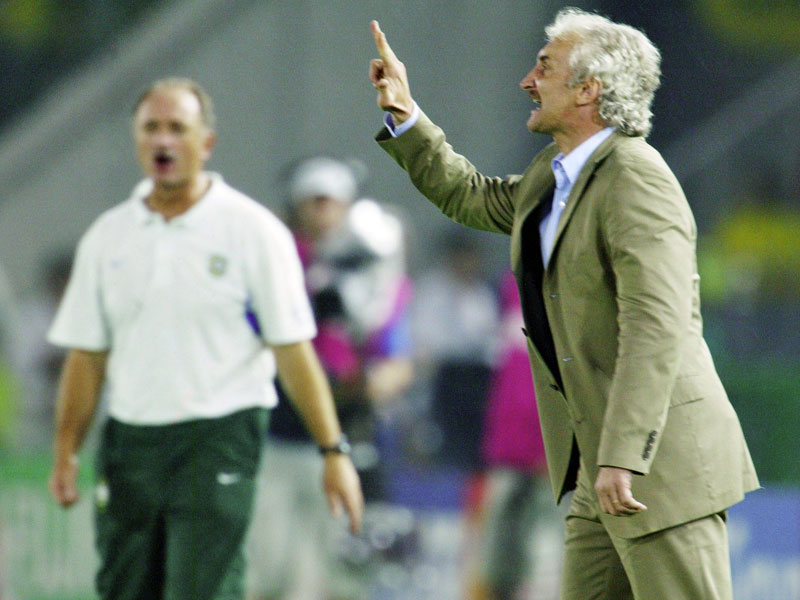
Later he had two brief experiences as a coach at AS Roma and Bayer Leverkusen, team of which he became sports director.

